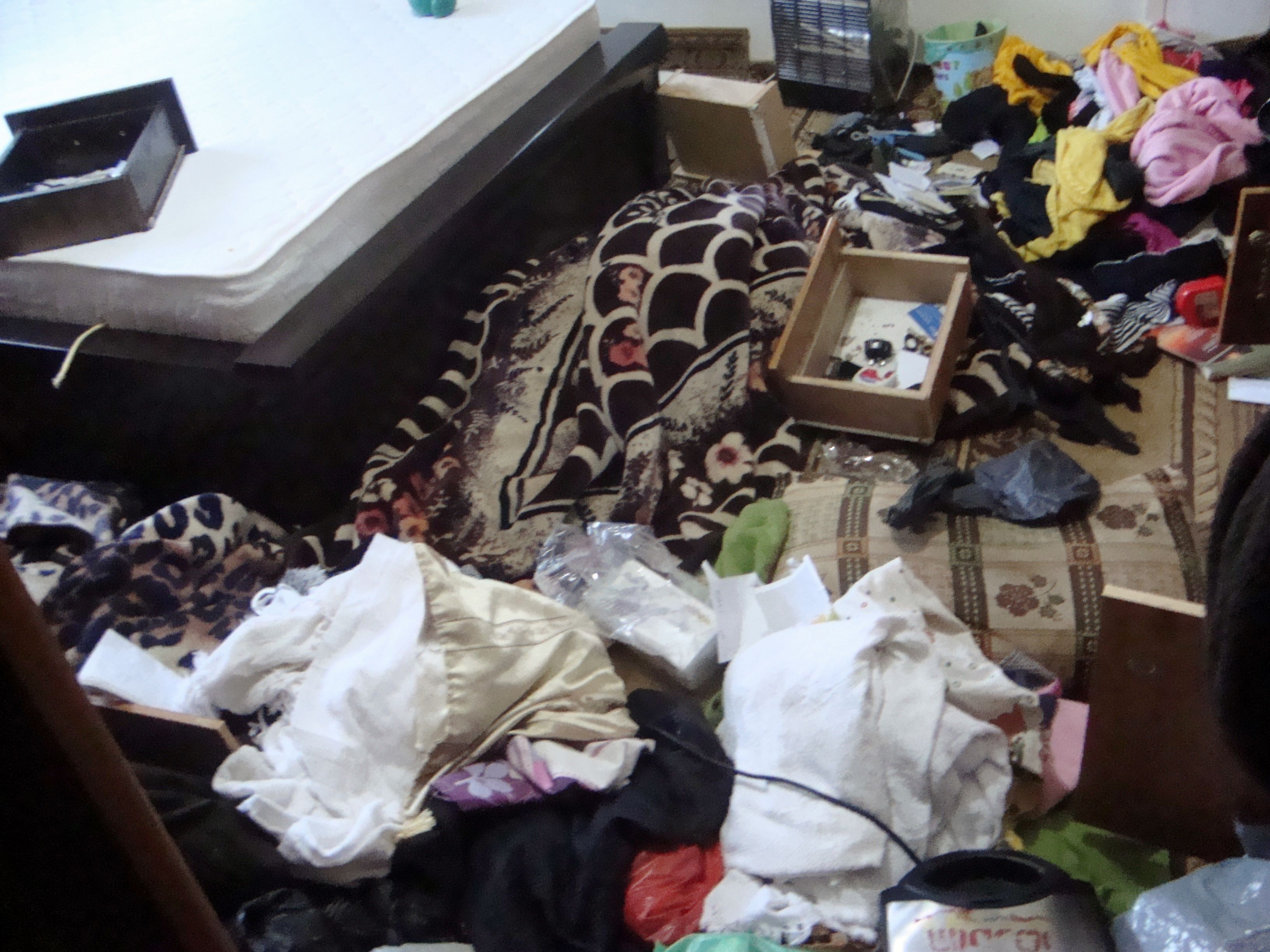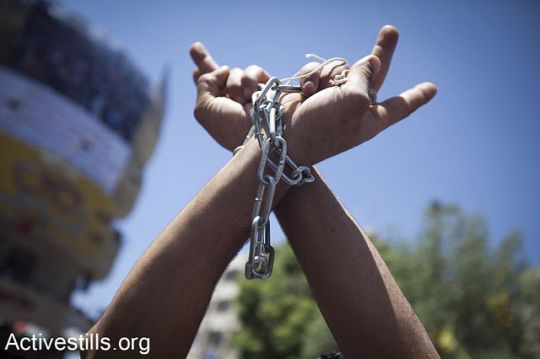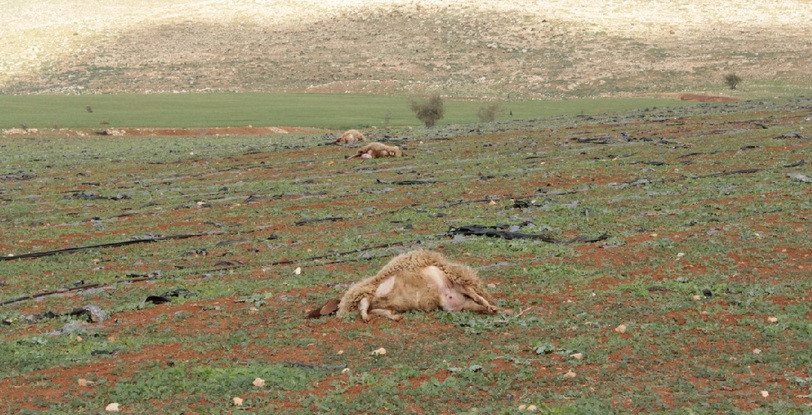Tag: Nablus
-
Palestinian arrested in night raid on his family’s home
25nd January 2015 | International Solidarity Movement, Nablus Team | Bruqin, Occupied Palestine At around 4:00 AM on January 23, Israeli forces arrested 22-year-old Raja Sabra in the course of a violent raid on his family’s home in the Palestinian village of Bruqin. His father was awakened by noises coming from outside. Twenty to thirty…
-
Released after over 10 years in an Israeli prison
22nd January 2015 | International Solidarity Movement, Nablus Team | Awarta, Occupied Palestine Two weeks after his release from prison, ISM activists had the opportunity to sit with Aiman Awwad and his friend, Samer Zaqah, in their hometown of Awarta. Aiman was arrested in June 2004, at the age of 20, and released in January…
-
Zionist settlers poison 13 sheep near Aqraba
6th January 2015 | International Solidarity Movement, Nablus team | Aqraba, Occupied Palestine Yesterday, ISM volunteers traveled to the area of Lifjim in East Aqraba, where shepherd Mohammed Ibrahim Abu Hamed grazes his sheep. Thirteen sheep lay dead there, foaming at the nose and mouth, one with green vomit visible – a clear case of…



